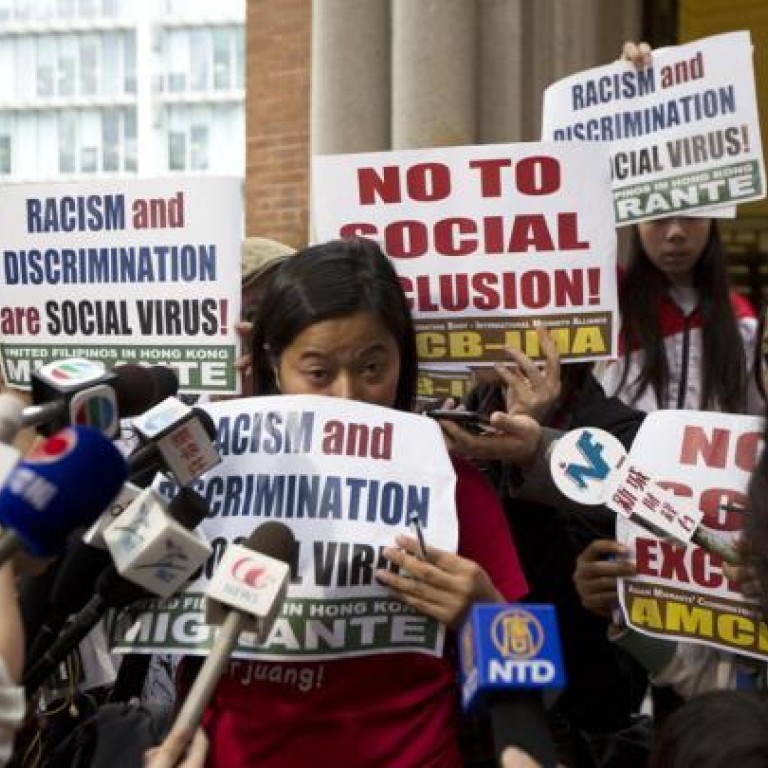
Don't use the law to discriminate against domestic workers
Beau Lefler says the courts should uphold principle of equality before law
In Hong Kong, people enthuse over the "rule of law" and its long-standing presence here. It is the cause of our economic miracle and social stability, and is purportedly the main difference between us and the mainland.
At a minimum, the rule of law includes the idea that those with power should not use the law to oppress those without. Unfortunately, history is replete with aristocratic elites or ethnic groups that oppressed those not belonging to their clan, caste or race, by dressing otherwise shudder-inducing inhumanity in the robes of legality.
Regrettably, societies have used the law as a tool of repression. For example, until recent times, laws in the US dictated dissimilar treatment of blacks and whites. Legal institutions in Germany did not thwart Hitler's rise to power but joined in enabling it. Judges committed moral crimes by abdicating their responsibility to check power.
Here in Hong Kong, until 1930, its then British rulers passed laws that reserved the choice areas of The Peak to non-Chinese, with exceptions made only by the governor's decree.
The city also had its own system of female child slavery. Local households bought young girls from poor mainland families and, like slave owners throughout history, assuaged their conscience with self-portraits of generosity - bondage in Hong Kong was surely better than freedom in poverty.
The average Hongkonger recognises that the laws here are bent in favour of the landed, moneyed elite, and people cry out that they deserve protection against the ravages of the powerful, politically connected elite.
Yet from those cries we hear the unmistakable echoes of hypocrisy. For while it is an outrage that tycoons have free rein to price-gouge and monopolise, it is apparently morally acceptable for those who suffer to inflict pain on individuals even more disadvantaged.
Visitors to Hong Kong are struck by the paradox of inhumane treatment of domestic helpers in an otherwise developed and beautiful place. The incongruity of a field full of non-Chinese, huddled together on cardboard boxes on a blustery winter day in the middle of the city, is stupefying.
And so the first of many questions come, to which unsatisfactory answers are uncomfortably given:
Why do they sit out here on cardboard boxes? They have nowhere else to go.
Why don't they get together with each other in their flats? The law prohibits them from living outside their employers' homes.
You mean they can't even go home at night after a hard day's work? No. And often they sleep in a child's room or on the kitchen floor. Legal rules have been designed to thwart any complaints of abuse or nonpayment of wages.
Why would Hong Kong make such horrible laws? Well, it's part of an ongoing effort to make sure that domestic helpers never become permanent residents. If they don't rent or buy, so the logic goes, they can never truly be permanent. Also, they must sign a government-produced contract that lasts only two years, after which the helper is forced to leave Hong Kong. This again works to prove they are not permanent.
Doesn't Hong Kong have constitutional protection against such unequal treatment? Indeed it does, but Hong Kong judges have ruled that since Hong Kong people don't want helpers to be permanent, it's OK for the judges to treat them like a lesser class of people.
It is said that those who are mistreated often mistreat others. As average citizens are legally oppressed by the powerful, that same citizen now legally oppresses the domestic helper, with open and ugly approval by a judiciary sworn to uphold the "rule of law".
